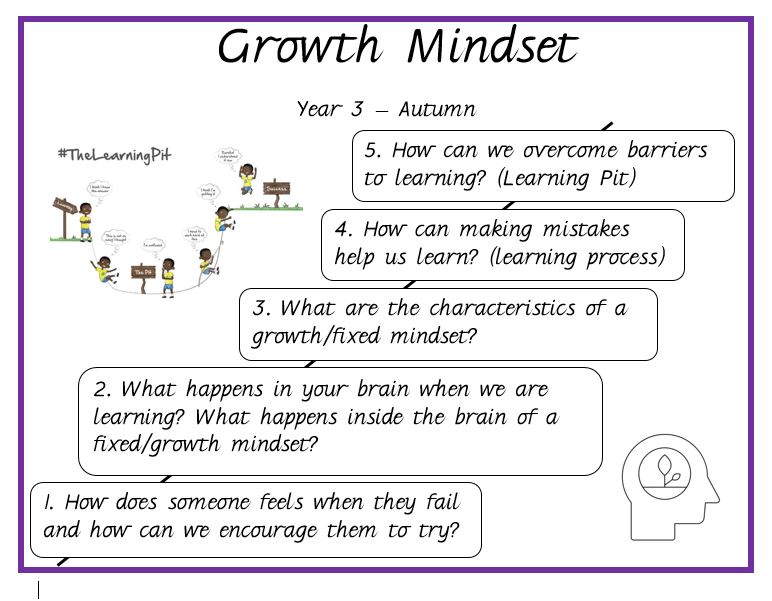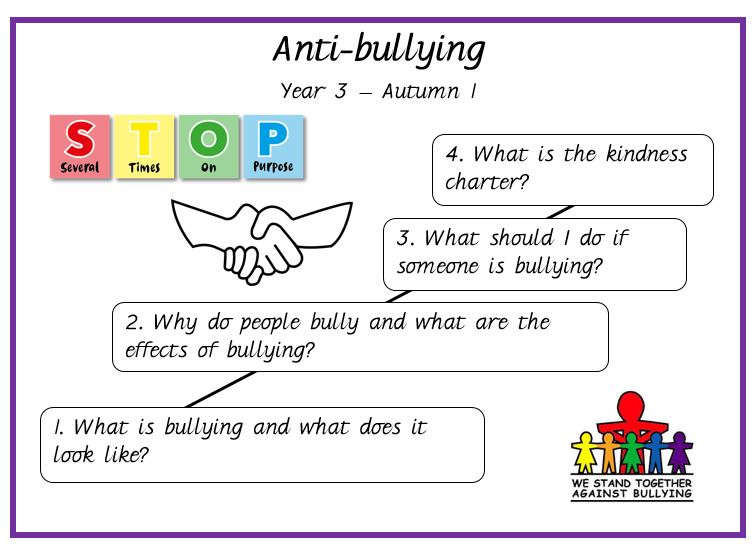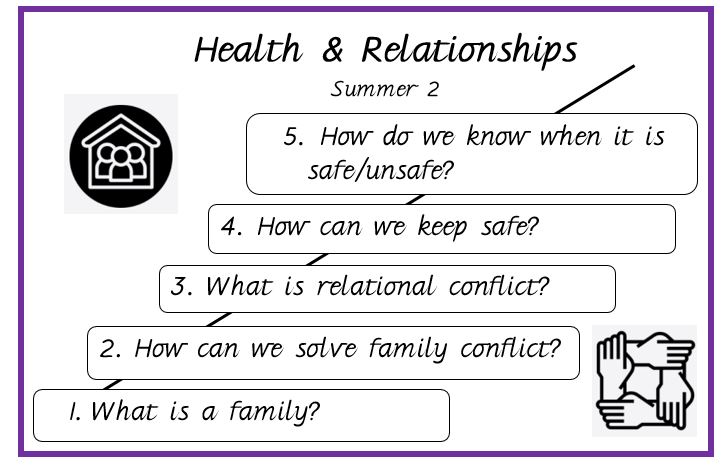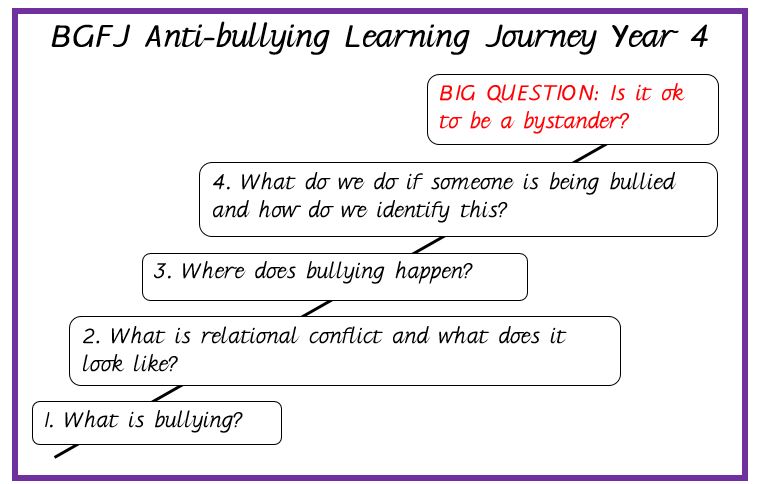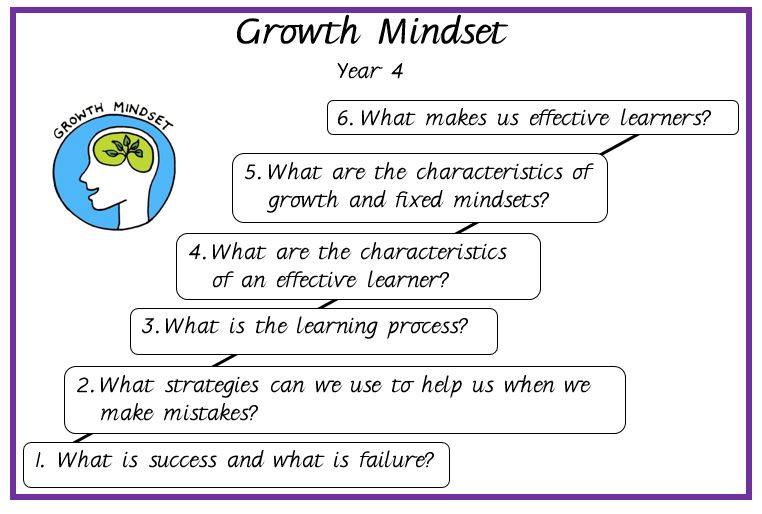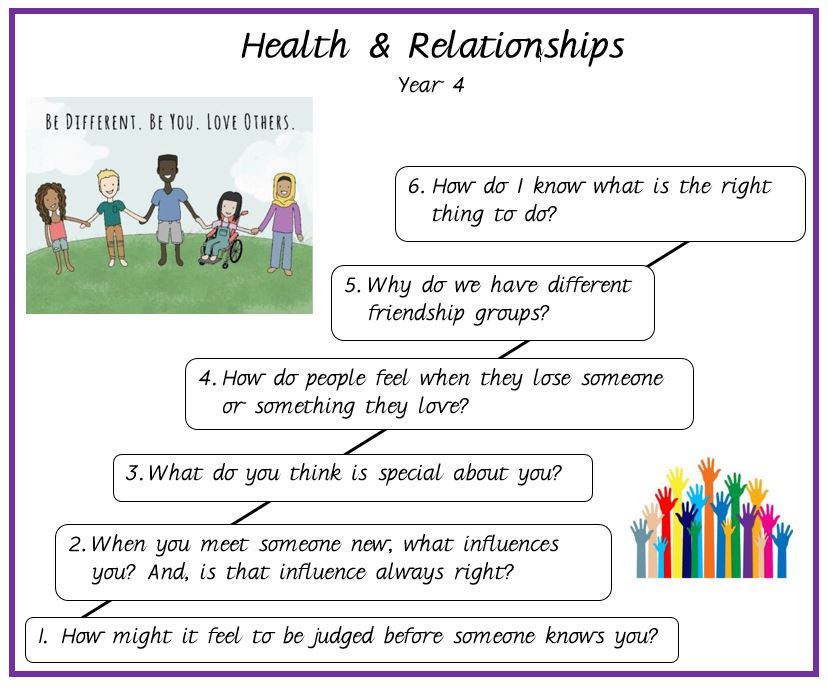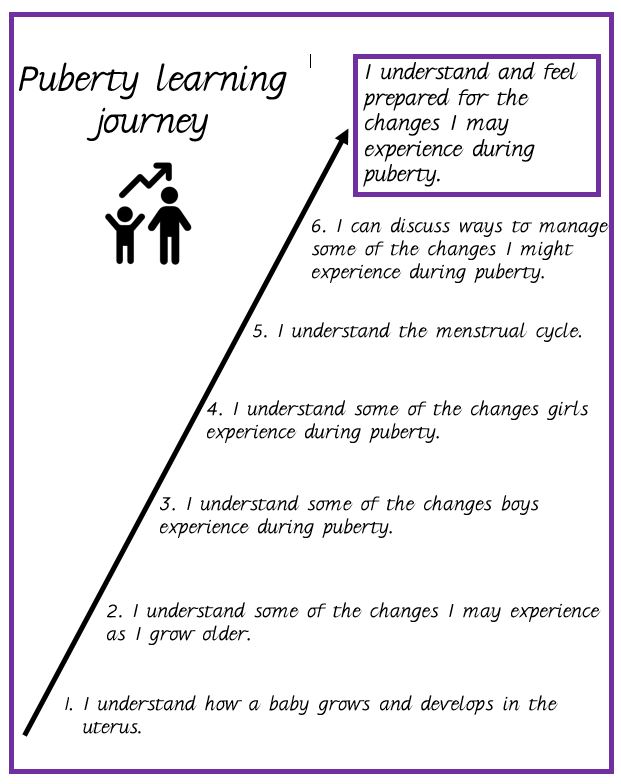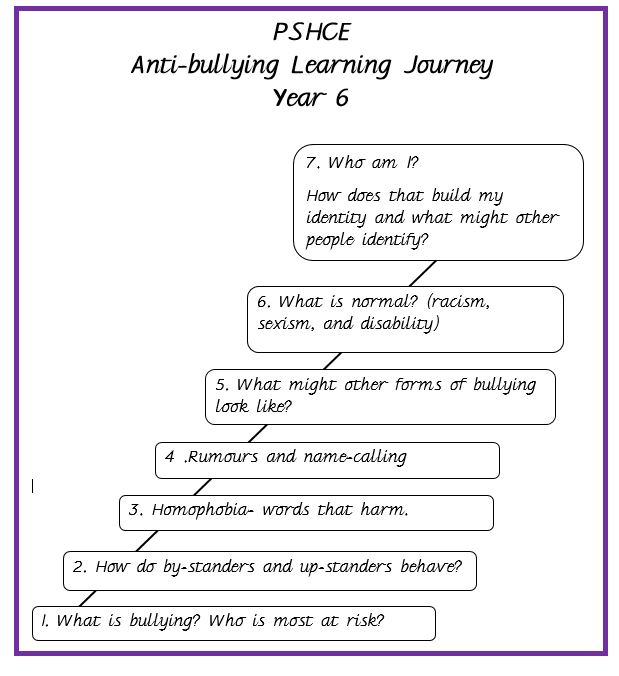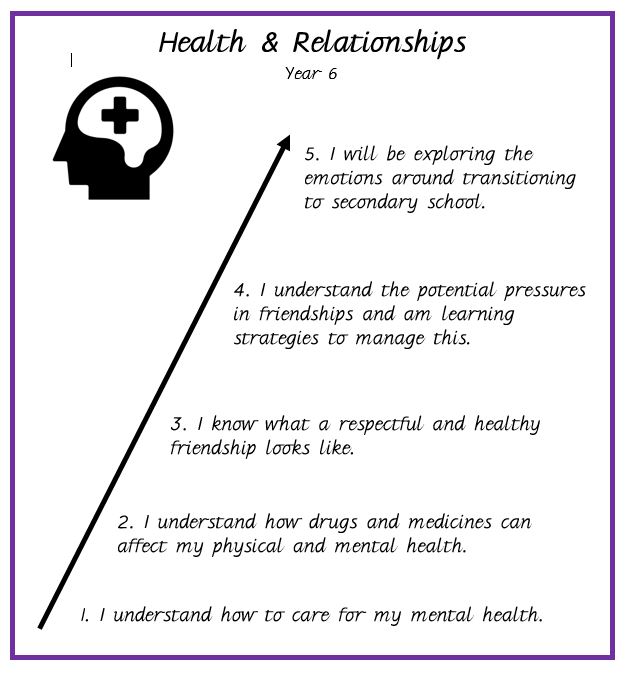Personal Health and Social Education
The Department for Education is seeking views on changes to the relationships, sex and health education statutory guidance. Please use the button to share your views.
PSHE education helps pupils to develop the knowledge, skills and attributes they need to manage many of the critical opportunities, challenges and responsibilities they will face as they grow up.
At Blue Gate Fields Junior School, we aim to teach ways to stay safe and healthy, help build self-esteem, resilience and empathy. Through the use of quality PHSCE programmes (Jigsaw, SCARF, Growth Mindset and P4C), we help to enable children to express, consider and discuss issues. The children’s understanding of the subject is deepened through opportunities to participate in drama, debates and take part in our annual aspiration day.
We tackle barriers to learning, raise aspirations, and improve the life chances of our children.
PHSE planning is supported through the use of Jigsaw resources and the SCARF: Safety, Caring, Achievement, Resilience, Friendship website (in accordance with DfE requirements). Planning centres on a values based and Growth Mindset approach with lessons planned to promote positive behaviour, mental health, resilience and achievement. The whole school are taught elements of the curriculum through The Coram LIfeBus residency in the Autumn Term.
As part of the PHSE curriculum, a unit of work on Growth Mindset promotes attitudes and values progressively throughout the school. This is taught specifically in the second half of the Autumn Term once teachers have established a relationship with their class.
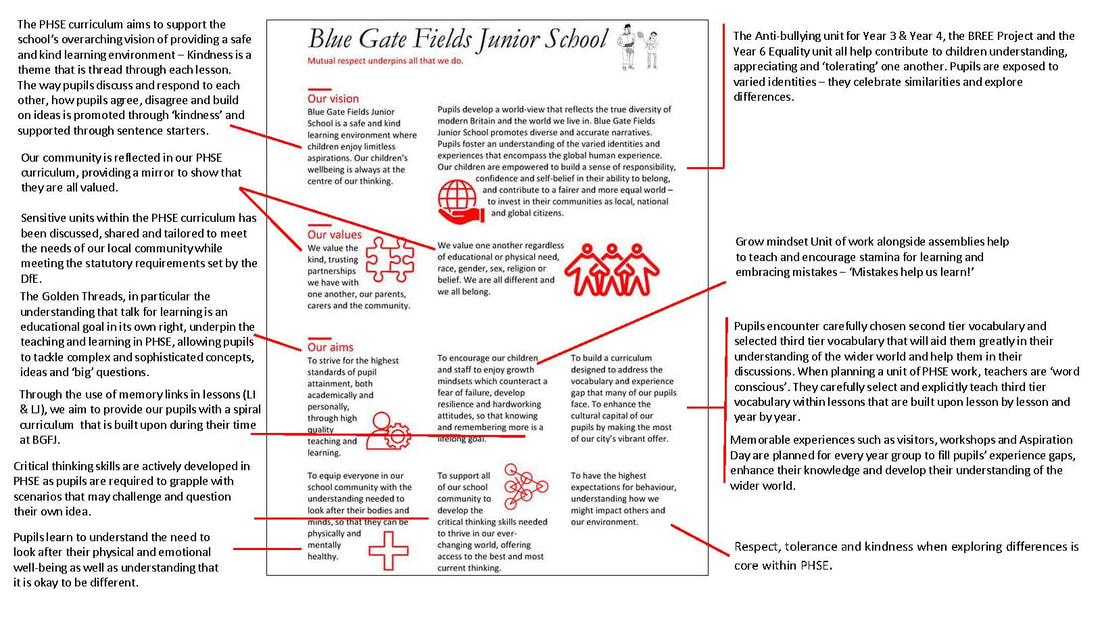
Documents to detail more about what we do, and why we do it:
Anti-bullying and Kindness
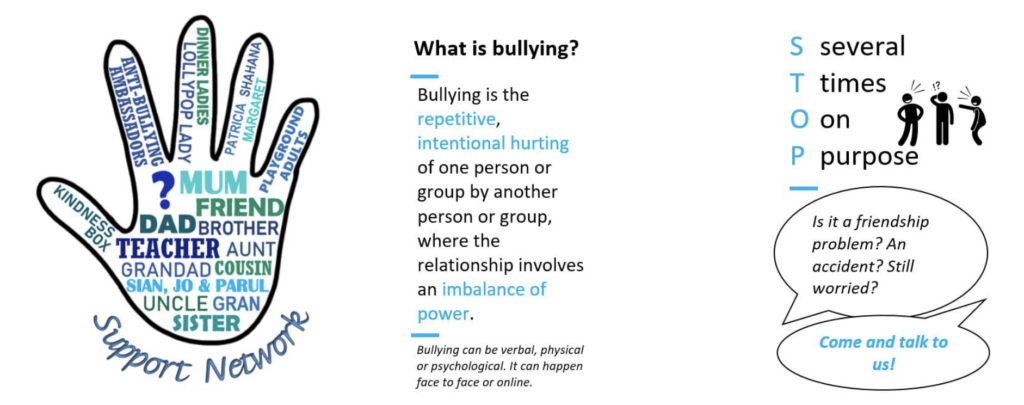
At Blue Gate Fields Junior School, mutual respect underpins all that we do. We aim to create an inclusive environment for all pupils which openly discusses differences between people and celebrates diversity.
We expect that pupils will act safely and feel safe in school, both physically and emotionally. To achieve these aims, we want our pupils to understand the issues relating to bullying and to feel confident in seeking support from school if they feel they, or others, are unsafe. This is crucial part of our school’s Anti-Bullying policy.
As a school, we are also aware of the importance of the Equalities Act 2010 and believe our pupils should know how it relates and impacts them within school and in the wider community.
In understanding and valuing the importance of the above and in meeting the statutory aims and objective of the Relationships and Health Education 2020, we have developed units of work to help equip our children with the knowledge, language and skills needed to tackle any issues of bullying that they may come across.
The BGFJ School’s Anti-Bullying unit of work and the BGFJ Equality Act unit of work aims to meet the following statutory objectives:
Relationships Education 2020 Statutory:
Families and people who care for me:
• That others’ families, either in school or in the wider world, sometimes look different from their family, but that they should respect those differences and know that other children’s families are also characterised by love and care.
Respectful Relationship:
• the importance of respecting others, even when they are very different from them (for example, physically, in character, personality or backgrounds), or make different choices or have different preferences or beliefs.
• about different types of bullying (including cyberbullying), the impact of bullying, responsibilities of bystanders (primarily reporting bullying to an adult) and how to get help.
• what a stereotype is, and how stereotypes can be unfair, negative or destructive.
Health Education 2020 Statutory:
Mental Wellbeing:
• that bullying (including cyberbullying) has a negative and often lasting impact on mental wellbeing.
Relationships Education 2020 Statutory:
Caring Friendship:
• how to recognise who to trust and who not to trust, how to judge when a friendship is making them feel unhappy or uncomfortable, managing conflict, how to manage these situations and how to seek help or advice from others, if needed.
Being Safe:
• how to recognise and report feelings of being unsafe or feeling bad about any adult.
• how to ask for advice or help for themselves or others, and to keep trying until they are heard.
• how to report concerns or abuse, and the vocabulary and confidence needed to do so
• where to get advice e.g. family, school and/or other sources
Health Education 2020 Statutory:
Mental Wellbeing:
• where and how to seek support (including recognising the triggers for seeking support), including whom in school they should speak to if they are worried about their own or someone else’s mental wellbeing or ability to control their emotions (including issues arising online).
We also want our parents and carers to feel confident that their children are safe and cared for in school and that incidents, when they do arise, are dealt with promptly and well. We would like our parents to understand our shared definition of what bullying is and what it may look like and feel informed about the language used when talking about bullying. Please read our leaflet and policy for more information.
Here are examples of our PHSE Learning Journeys. These map out the key questions, or statements that create the direction for the learning.
